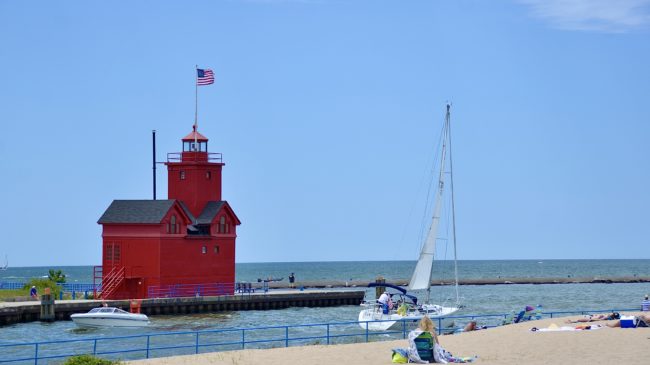Michigan Proposal 1: Use of State and Local Park Funds
Summary:
Currently, Michigan’s Natural Resources Trust Fund (NRTF), which provides grants to local governments for acquiring land for various related uses, and the State Park Endowment Fund (SPEF), which provides funding for the state park system, receive revenue from mineral, oil, and gas leases and royalties. State law directs various limitations on how that money is used. Michigan’s Proposal 1 would make the following changes to how those revenues can be spent:
Changes to the Natural Resources Trust Fund:
- would allow the NRTF to give grants for renovating and improving existing recreational facilities.
- would require that a minimum of 25 percent of total grants go to improving existing or building new recreational facilities. Currently, only 25 percent of grant funding can be spent on developing current facilities.
- would remove the NRTF’s cap of $500 million in principal and allow it to grow faster and have the potential for more funding for grants.
Changes to the State Park Endowment Fund:
- would allow spending the SPEF on park operations and maintenance in addition to existing funding of land acquisitions and capital improvements.
- would require at least 20 percent of expenditures go to capital improvements.
- would allow more funds to flow to NRTF once SPEF reaches $800 million in principal.
Fiscal Impact:
Proposal 1 would not lead to any net changes in state revenues. It would, however, change the way current revenue is allocated.
Proponents’ Arguments For:
Proponents argue that Proposal 1 would give the state more flexibility to build new recreational facilities and expand, improve and run existing ones to provide more outdoor opportunities in communities statewide while also conserving and protecting important natural lands. Currently, the SPEF has no money for park operations and maintenance and the NRTF is limited in its ability to spend on capital improvements. Proposal 1 would fix both of those problems, advocates say. These programs require no taxes but put royalties from the extraction of natural resources to beneficial use.
Opponents’ Arguments Against:
Opponents argue that Proposal 1 is confusing, complex, and unnecessary. They say it would reduce the amount of money that is available every year for projects to protect parks, environmental lands, and essential wildlife habitat. The Michigan Natural Resources Trust Fund makes important land acquisitions that would be lost forever under Proposal 1, which would also remove constitutional protections that currently ensure funding for land conservation remains a top priority and prevents diversion of those funds towards development. Opponents say Proposal 1 undermines land protection and conservation of wildlife habitat and biodiversity in Michigan for future generations.
Discussion:
While Proposal 1 passed the state legislature with bipartisan support and has no formal opposition, there are some concerns about expanding the missions of these state funds. The NRTF cap is not lifted until SPEF hits $800 million. It is currently at $237 million and grows anywhere from $15 million to $50 million in a given year. This means that the cap on NRTF will likely not be lifted for at least a decade or more. However, the changes in the use of funds go into effect immediately and could have a large impact, as there is some evidence that public park funds are in serious distress and falling far behind on maintenance and improvement. Proposal 1 would lockbox revenues for parks programs but may mean the dedicated funds never reach higher funding levels.

